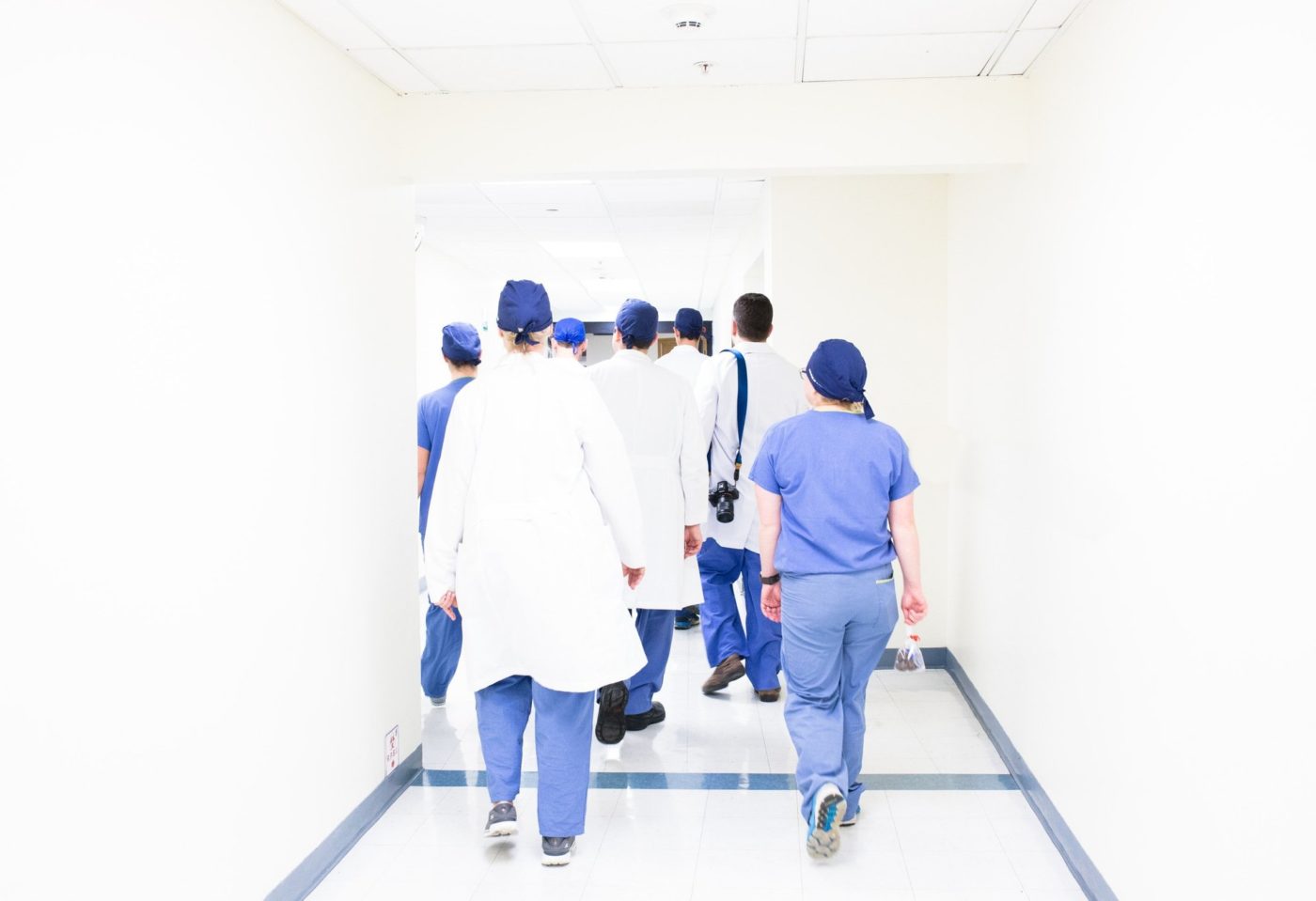
Is the NHS keeping us ‘sick’?
Helping ourselves to better health
I was chatting to a friend recently who runs a sleep consultancy aimed at young families but also working with adults. She does a lot of free talks and is trying to get her service out there but she was telling me how hard she found it getting people to book consultations. There is certainly no lack of people seeking advice (especially with helping their young children to sleep through the night!) and she always has a queue of people wanting to speak to her after one of her talks or sending questions by email, but when it comes to actually booking a consultation and potentially laying down money, they disappear.
Now, this is a scenario that is probably familiar to many holistic or complementary healthcare services in the UK. We (the public) are very used to getting free services and advice with anything to do with our healthcare, having the wonderful NHS which provides its service free at point of delivery (and of course we have already ‘paid’ for it via our tax and NI system).
However, it is widely reported that the NHS is in crisis. Our doctors and nurses, A&E, ambulance service, paramedics, etc are stretched and as a population we are also living longer – no wonder it’s in trouble.
Just the other night I was watching one of the ‘What’s Your Emergency’ programmes on TV, and our police and ambulance services were being called out to take care of people under the influence of alcohol. In one particular case a perfectly respectable looking middle-aged woman was so drunk that an ambulance was called and she was taken to hospital to be checked over after falling over, and to keep her from being near a road where she could potentially cause an accident – as even she noted in the interview afterwards, it was a complete waste of resources. Just to reiterate here: an ambulance including its highly trained medical staff being used as a taxi service to take a drunk woman to A&E so that she could be checked over and to keep her from potentially injuring herself or others, for a completely self-inflicted condition. How can this be right? That ambulance and all the medical staff involved could have been treating other far more serious and dare I say it, more deserving, cases. And it’s free. That same woman could go out the next night, get completely drunk and go through the same thing again… and again… and again.
This is a just one example of how our NHS is being mistreated and over-stretched.
If anyone has seen the BBC’s ‘Doctor in the House’ series, you might be familiar with Dr. Rangan Chattergee. He’s a GP who has seen how the NHS is firefighting a growing population and its symptoms, and is trying to do something about it. Instead of spending time and resources – because they simply do not have them available, the average 8-10 minutes allocated per patient is simply not enough time to get to the bottom of a lot of the issues being presented on a daily basis – our GP’s are handing out pills and quick fixes. In the programme, alternative and complementary healthcare were shown to help the patients showcased enormously.
In the most recent series the Alexander Technique was featured on a paralympic athlete (he had lost a leg during childhood) who was shown how to hold himself better and put less strain on his shoulders during everyday life using crutches and during his extremely demanding sport of ice sledge hockey, meaning he could minimise the damage to his shoulders which would lead to life in a wheelchair.
In another episode, a 34 year year old mother had been suffering from severe anxiety, panic attacks and depression since she was 19. She relied on a cocktail of antidepressants, alcohol, nicotine, caffeine, and high-sugar processed foods and drinks. During the programme she was persuaded to change her diet and alcohol intake which helped address some of the mood swings and to see a counsellor to address a trauma she had suffered at 19 which may (probably) have been the cause of her 15 years of mental health issues.
Both these complimentary therapies would probably not have been available through the NHS, or if they were would certainly not have been available in a short time frame – however they are readily available on a private basis.
Just last week (July 2017) there was a BBC news story involving a young woman who had suffered from an eating disorder, on seeing her GP she was put on the NHS waiting list to see a talking therapist but was given a time frame of over a year – this is a young woman who has taken the huge step to seek help and is being told she would have to wait for it. In the meantime, how much worse would her condition have become before she finally got to see the therapist? In the end her parents paid for her to see a therapist and she was quickly on the road to recovery – again, an instance of much needed complimentary healthcare which is readily available on a private basis, and which ultimately saves the NHS a huge amount of money. Had the young woman waited, she could potentially have been in a much worse state needing hospitalisation and more medical care – not to mention the mental anguish she and her family would have gone through.
In almost all other countries, health services are paid for by the patient at point of treatment and may be reclaimed via public or private insurance. Take having a baby as an example: I’ve had 2 babies in the UK and they didn’t cost me anything – I had scans, regular midwife checkups, blood tests, antenatal classes, hospital delivery (both happily delivered naturally without the need for additional medical help, but I knew it was there if things did go awry) and follow up home visits by my midwives and health visitors.
If I’d wanted to go privately, I may have paid around £10,000 ($15,000) – that’s the amount that was allegedly spent on Prince George’s birth at a private London hospital. In the US, if you want to have a baby you need to plan to spend around $30,000 for a standard vaginal birth, not withstanding any complications. If you’re opting for a caesarian you’re looking at around $50,000. If you have medical cover, you’re probably paying in the region of $100-$285 per month to cover childbirth, depending on the level of voluntary excess to mitigate the higher premiums, and the payout itself will have a maximum ceiling after which you would have to pay any outstanding balance. If you’re on a low income (less than $16,000 per year) you might qualify for Medicaid. See how lucky we are, and yet this very same wonderful free at the point of delivery service we have is taken for granted.
So, getting back to the title of this piece: Is the NHS keeping us ‘sick’? To some degree it is, simply because there is no time or financial resource to do anything other than deal with the presenting symptom. Got a rash? Here’s a cream. Trouble sleeping? Here’s a sleeping tablet. Feeling depressed? Try this antidepressant. In a lot of cases these symptoms can be signposts to a hidden cause – it may be anxiety related, or down to diet or lacking in vitamins (B12 has been linked to extreme fatigue, compromised balance, ‘cloudy’ thinking).
But without our very own ‘Doctor in the House’ it is hard for our poor overstretched NHS to do anything other than treat the symptom so isn’t it time we take control? There are many alternative therapies and complementary healthcare services available – if you are prepared and can afford to pay for it.
In fact the Government recognises the place of complementary healthcare and has a register in order to protect the public: “The CNHC (Complementary and Natural Healthcare Council) is the UK register for complementary healthcare practitioners that was set up in 2008 with government funding and support. We hold a UK register of complementary health practitioners who have met UK standards. CNHC registrants work in private practice, the NHS and a wide range of other health and care settings.”
https://www.cnhc.org.uk/
So if you are living with a condition that affects your everyday, if you’re fed up with putting up with a condition that you really could live without, isn’t it time you thought about helping yourself to better health? Yes it costs money, but perhaps we need to start thinking about our health in the same way we think about our possessions – you pay to get the car serviced, you pay for gym membership, you pay to eat nice food, you pay for new TV’s, computers, ipads, stuff… just to have the latest model or because you can. Shouldn’t we see our health as a valuable ‘possession’ too? Something to keep in tip-top shape, to invest in?
For the cost of a night out you could see a private therapist (and there’s a huge range of different services available, whatever you need to deal with) and feel so much better in yourself and about yourself – and aren’t you’re worth it?
If you’re interested in seeing a clinical hypnotherapist and psychotherapist for a range of issues including poor sleep, anxiety, stress, depression, eating disorders, weight management, fears or phobias, quit smoking, high blood pressure give us a call: 01798 344879 or email geraldine@questhypnotherapy.co.uk
Sessions can be conducted in person or via skype.
